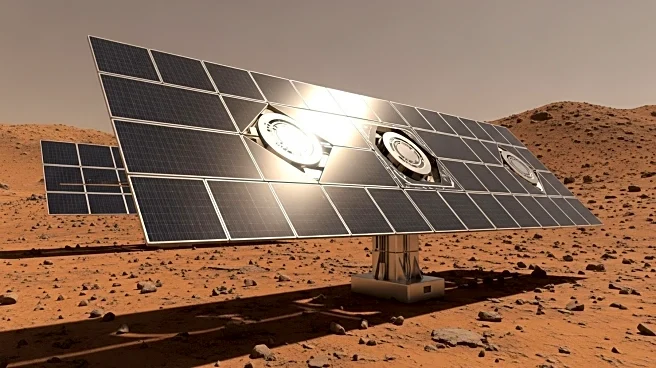What is the story about?
What's Happening?
Starpath, a startup focused on space technology, has announced the launch of its space-rated solar panels designed to power human missions on Mars. The company claims its panels are approximately 90% cheaper than the industry standard. Starpath's CEO, Saurav Shroff, stated that the company is prioritizing robotics and automation in its production process to achieve mass production goals. The startup is targeting U.S. commercial space companies as its primary customer base, although it currently has no direct contracts with NASA. Starpath's solar panels are manufactured in Hawthorne, California, and are available in two models: an engineering model for prototyping and a flight model for space use.
Why It's Important?
Starpath's initiative represents a significant advancement in the affordability and accessibility of solar power for space missions. By reducing the cost of solar panels, the company is potentially enabling more frequent and sustainable missions to Mars, aligning with NASA's long-term goals for human exploration of the planet. The focus on automation and robotics in production could also lead to increased efficiency and scalability in the space technology sector. This development may encourage further investment and innovation in space exploration technologies, contributing to the growth of the commercial space industry.
Beyond the Headlines
The introduction of cost-effective solar panels for space missions could have broader implications for renewable energy technologies on Earth. The advancements in production techniques and cost reduction strategies developed by Starpath may be applicable to terrestrial solar energy solutions, potentially driving down costs and increasing adoption rates. Additionally, the success of such technologies in space could bolster public and private support for renewable energy initiatives, highlighting the interconnectedness of space exploration and sustainable energy development.
















